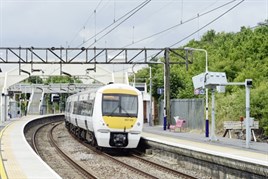 Read the peer reviews for this feature.
Read the peer reviews for this feature.
The new team at the Department for Transport, led by Rail Executive Director General Claire Moriarty and Franchising Director Peter Wilkinson, has finally answered the long-asked question of what rail franchising is for.
It has previously been seen variously as: a form of passenger taxation presented in a requirement to maximise premium income; a barrier to competition in the market by objecting to open access operators; and an obstacle in the way of improving journey experience by the micro-management of everything from the timetable to rolling stock provision.
At last we have the determination that franchise contracts must work for the benefit of passengers, and that the assessment of bids and weighting of scores will be focused on that objective, rather than the narrow measure of financial benefit that has been the sole arbiter in the past.
There is also the mature understanding that a level of profit must be earned by private companies to meet their cost of capital. This cannot be avoided if there is to be a transfer of risk that genuinely protects the taxpayer if delivery of the franchise business plan fails.
The meltdown that followed the weaknesses evident in the bidding process for the West Coast Main Line contract in 2012 cannot be ignored. This was entirely a problem of the DfT’s own making, as it was the way that officials chose to implement departmental cost savings that led to the abolition of a rail-specific organisation, with responsibilities for industry functions spread around the leadership team. There was also an aversion to hiring consultancy expertise to fill gaps in the skills and experience of the available civil servants.
As a result, two inquiries/reviews were conducted by Sam Laidlaw and Richard Brown. The former concluded that the way the DfT was organised was not fit for purpose in the management of rail functions and the franchising process, and that a structure was needed to provide the expertise necessary to achieve Government objectives.
Richard Brown’s review looked to the future, and what needed to be done to allow the franchise system to work for the benefit of industry stakeholders - including taxpayers, train operators, infrastructure providers and contractors, and (most importantly of all) passengers.
At the heart of recommendations was the need to restore a dedicated Rail Group within the DfT, and appoint an executive responsible for defining the franchising process and managing its implementation.
Peter Wilkinson was appointed to this role. One of the early findings was that the programme of contract renewals could not be managed with the available resources, and that to be realistic it was necessary to restrict refranchising activity to three competitions annually. As a result, a schedule was established that included Direct Awards to extend existing franchises - one such is the West Coast route, where Virgin will now continue to operate services until 2017.
Rail Delivery Authority
The Government intends to go further, by establishing a new Rail Delivery Authority (RDA). This is a response to the realisation that a situation had been allowed to develop whereby civil servants lacked the necessary railway and financial knowledge to provide industry leadership and conduct contract procurement of a specialist nature.
It also recognised that attempts to improve the skills gap had been unsuccessful, as it had not proved possible to recruit people with the necessary skills and experience within the civil service employment framework.
The creation of a Rail Delivery Authority cannot happen quickly because legislation is required, and it is not possible to introduce this before May 2015 when the current coalition Government ends. To make progress in the short term, the DfT has reorganised and separated rail franchising activity from other work it performs.
A new organisation called the Office of Rail Passenger Services will be created to manage the franchising process. It will have its own Managing Director, and the job was advertised in May 2014 at a salary of £250,000. In early September, Peter Wilkinson was appointed.
The post holder will advise ministers on longer-term strategy for franchise policy, and support the Secretary of State in understanding the political agenda alongside commercial considerations, in order to secure the best possible outcomes for rail passenger services.
The skills required are listed in the job description, which identifies a need to navigate complex landscapes and build credibility across the rail industry, as well as with ministers and key players in Whitehall.
Peter Wilkinson comes with experience of establishing, leading and motivating high-performing teams. A collaborative style and sensitivity to the political context and complex stakeholder environment will be essential. His ability to manage commercial negotiations within a public sector and political environment will be important, alongside a collegiate approach to working in partnership with colleagues, contractors and stakeholders alike. His prior experience of the rail industry will be crucially important.
The remainder of the reconstituted Rail Group is to be restyled as the Rail Executive. Its immediate task will be to develop a framework agreement between the DfT and Network Rail, which has now been reclassified as a part of central government activity, after the decision to include its funding requirements in the national debt.
A new approach to recruitment is planned for a team of 150 people, with an appropriate reward and development structure to attract staff and reduce the current dependency on consultants.
There is a further element in the governance structure, with the establishment of a Franchise Advisory Panel, chaired by Richard Brown (who remains a non-executive director of the DfT) and formed by leading figures from the rail industry and financial institutions. This group provides the opportunity for an overview of issues that emerge as part of the franchising and Direct Awards programme.
Other organisations are involved in the award of franchises, concessions and licences to allow the operation of rail services.
Transport Scotland has responsibility for the ScotRail and Caledonian Sleeper franchises, while the Welsh Government oversees operations in Wales and the Borders.
The Liverpool City Region Combined Authority continues to have responsibility for the 25-year Merseyrail concession, and Transport for London is the contract awarding body for London Overground, Crossrail and the Docklands Light Railway.
The Office of Rail Regulation licenses the operation of open access and charter services, by the approval of Track Access Agreements. This sector embraces Heathrow Express, Hull Trains, Grand Central and formerly Wrexham & Shropshire operations. There are a number of outstanding applications from Alliance Rail (owned by Deutsche Bahn) for operations on both East and West Coast routes.
Govia improvement plans for combined TSGN franchise
In respect of DfT franchising activity, two recent awards have been made as a result of the implementation of new processes.
The first is the combined Thameslink, Southern & Great Northern (TSGN) contract. Govia, the existing Southern operator, has been chosen as the future operator, replacing FirstGroup, which has run the current Thameslink and Great Northern services (branded as First Capital Connect, FCC) since April 2006.
Govia is a joint venture between the UK based Go-Ahead Group (65%) and Keolis (35%) a partially owned subsidiary of French national operator SNCF. It also operates the London Midland and Southeastern franchises.
A seven-year contract has been awarded, starting on September 14, with a progressive amalgamation of operations. Initially only FCC services will transfer to new ownership, followed by a small number of Southeastern trains that operate on Thameslink routes on December 21 2014, with the Southern network being integrated from July 26 2015.
Revenue forecasting is problematic, given the disruption to services as the Thameslink infrastructure upgrade is commissioned. To remove this complication, the DfT has opted for a management contract that commits Govia to operate the franchise at an agreed price of £8.9 billion. With revenue expected to be in excess of £12bn, there will be a healthy surplus for the Government.
Analysts expect that the successful bidder will generate some £250 million in profit, provided it is able to deliver productivity improvements included in the bid. The level of profit could erode significantly if service quality benchmarks and reduced operating costs are not delivered. That represents real risk.
Despite the commitment to making productivity improvements that reflect the expectations of the McNulty Rail Value for Money study, Govia has made some ground-breaking customer service commitments.
Both First Capital Connect and Southern have had relatively
poor National Passenger Survey results.
The former recorded an overall satisfaction figure of 79%, which fell to 43% when passengers rated performance at times of service disruption, during which time only 16% considered the availability of staff adequate. Southern had scores of 76% for overall satisfaction, 39% for dealing with delays, and a higher (if still disappointing) 36% for staff availability.
Govia’s response is a commitment to staff 100 of the busier stations on a first to last train basis, with 20,000 days of customer service training for frontline staff and investment in new information systems at stations. Community Rail Partnerships will be supported, with £1m per annum provided for improved facilities promoted by local interests, and a very welcome initiative to offer work experience and mentoring for young people in the area served by the franchise.
There will be a return to the use of Thameslink to describe the services, but the Southern and Gatwick Express brands will be retained. Dedicated airport services return, with new rolling stock provided that reflects airline passenger requirements - 108 vehicles will be constructed to replace the ageing Class 442 formations by the end of 2016.
The principal fleet change is the introduction between 2016 and 2018 of Class 700 trainsets to operate core services using the through route that will link Cambridge, Bedford and Peterborough with Brighton and towns in the South East. These are fixed formation trains, made up of 60 eight-car and 55 12-car units being built by Siemens in Germany.
Great Northern inner suburban services that operate to/from Moorgate will also receive new trains built to the latest metro specification, with 150 vehicles being provided to replace the 40-year-old Class 313 dual-voltage sets by 2018.
There is a current volume of 237 million annual journeys for the combined business, generating receipts of £1.3bn per annum and employing 6,500 people. There will be a significant increase in capacity as a result of enhanced infrastructure through central London, where the operation of 24 trains per hour will provide 10,000 additional peak-hour seats.
Interestingly, what was originally expected was the operation of 12 trains from each of the Midland & GN lines. But the timetable is now to be based on 16 services to/from Midland destinations and eight GN operations, with the result that a number of trains will continue to terminate at King’s Cross.
c2c franchise to remain with National Express
A new 15-year contract for Essex Thameside (the London, Tilbury and Southend lines that are operated under the c2c brand name) has been awarded to current franchise holder National Express.
The contract will commence in September. This will mean continuity of operation since 2000, when National Express acquired Prism Rail, which secured the franchise in 1996.
The structure of the proposed contract follows a more standard approach, with the risk of delivering the business plan taken by the franchise holder. It is emphasised that the passenger benefit contained within the bid has been the decisive factor in awarding the contract, although there are some demanding revenue targets. This results in forecast premium payments of £1.5bn over the term of the franchise, which is protected by a Parent Company Guarantee.
There will be an expansion of services, with 17 new four-car electric units added to the fleet. The timetable will provide 20% additional services, made possible by the release of capacity on the former electric lines between Stratford and Liverpool Street, by the diversion of some Crossrail services to Abbey Wood. This will allow trains operating from the c2c line to run to Liverpool Street as well as Fenchurch Street station.
A significant passenger benefit is the commitment to running a ‘right-time’ railway, with a Passengers’ Charter obligation to make automatic refunds to passengers by giving smartcard credits on an automated basis. This will replace a process that requires a paper-based application for compensation (to reflect service shortfalls) that many users do not make.
Caledonian Sleeper will see service transformation
In Scotland, Serco has been awarded a 15-year contract to operate the overnight Caledonian Sleeper services, starting April 1 2015.
This follows the decision by Transport Scotland to separate operations from the overall ScotRail franchise, as it believed different management skills were required to meet market opportunities.
The change in emphasis has already been demonstrated by Serco, with the involvement of a Scottish-based hotel group as project partners. Income from fares is expected to be supported by subsidy payments of up to £180m over the contract term.
The two daily return services have operated mainly in the tourist market, as for business travel requirements the availability of domestic air flights and the speeding up of daytime trains has weakened the appeal of overnight rail travel.
Issues remain with the sleeping car product, given the change in customer expectations, and Transport Scotland has taken the view that if the services are to be continued there has to be a step change to transform the offer and maximise value as a tourist attraction.
The centrepiece of the franchise plan is a £100m investment to supply 72 new overnight vehicles, built by CAF in Spain, to be formed into four trainsets that are to be introduced in 2018. The product will offer en-suite berths, pod seats comparable to the airline business class, and improved catering with a restaurant offering a brasserie style of service.
Serco is expected to buy in train haulage. Reports have been circulating that GB Railfreight will provide these services, presumably using Class 92 electric locomotives, for the trunk haul part of the journey over electrified routes, with the possibility of upgraded Class 73 electro-diesel traction being used on relevant line sections in Scotland.
East Coast transfer to the private sector
Within the DfT domain, the next award will be for the East Coast franchise. The bid winner will be announced in October 2014, when mobilisation will be required to enable operations to commence in February 2015. The contract length has yet to be confirmed, but it is expected to be around eight to nine years with a possible extension of up to two years if business plan benchmarks are achieved.
Unlike previous franchise awards that have involved a change of control, the winning bidder will buy the East Coast Main Line operating company under the terms of a share sale agreement.
A closer working relationship with the Government is sought, with a partnership committed to deliver vision, a long-term plan and a delivery team that is wholly committed to putting passengers at the heart of the business. The objective is to realise the full potential of both the franchise and the investment being made in infrastructure and IEP rolling stock.
This was mirrored in the prospectus, with a call for genuinely creative bids offering improved timetables that build on the core train service requirement, alongside a transformation of the customer experience.
Bidders have been urged by the Franchising Director to engage with the DfT in discussing innovative solutions that include new funding proposals. It reflects a Government desire to ensure that the passenger gains, the industry thrives, and the taxpayer benefits.
The cap and collar provisions of previous contracts will not be repeated, as although the Government will share in profits beyond an agreed threshold, protection against revenue risk is confined to an adjustment in contract payments if economic growth is lower than forecast.
The three rail trade unions - RMT, ASLEF and TSSA - subsequently challenged the legal validity of the East Coast franchising proposal on the basis of process failures, but the challenge was rejected by legal authorities.
The argument has also been advanced that Directly Operated Railways should continue to run the business. This is because since taking over operations from National Express in November 2009, the East Coast business has performed better than comparable West Coast operations.
This is only in terms of the premium paid to the Government, however. Last year earnings from services operating from King’s Cross enabled £208m to be paid to the DfT, compared with a payment of £108m by Virgin in respect of its West Coast services.
Much has been made of this, but the statistic is not a reliable basis on which to assess the relative efficiency of the two businesses. There is a large variation in rolling stock costs, whereby Virgin pays £250m more than East Coast in annual charges, given the age difference of the two fleets.
Scotrail must upgrade services for inter-urban and scenic routes
The Invitation To Tender for the ScotRail franchise that commences on April 1 2015 required a significant upgrade in the provision of services.
Infrastructure improvements are being made to the core inter-urban routes that serve Scotland’s seven cities, covering services that operate from Edinburgh/Glasgow to Aberdeen and Inverness with stopping patterns at Perth, Stirling and Dundee, and on the East-West link between Aberdeen and Inverness.
This will allow faster journey times. And to exploit this, the future operator is required to improve the quality of rolling stock so that vehicles are comparable with Mk 3 coaches currently operated by East Coast on the Anglo-Scottish services beyond Edinburgh.
There is also recognition that services operating on scenic routes can be improved as a tourist attraction. This covers the West Highland (Oban/Fort William) and Kyle routes, where there is a specification for suitable rolling stock to be provided that gives passengers a better opportunity to see the views. The train operator will also be tasked with working with Network Rail to clear vegetation that obstructs the scenery. Catering must also be available on these services.
The £650m Edinburgh-Glasgow Improvement Programme (EGIP), which as well as Central Belt electrification via Falkirk High includes the provision of overhead wires to Stirling, Alloa and Dunblane, will be commissioned between December 2016 and December 2018. The franchisee is required to introduce new rolling comprising 23-metre vehicles formed into eight-car sets.
Transport Scotland is also providing a £30m stations improvement fund, but expects proposals to be brought forward that attract additional third party funding. Areas for priority are the improvement in station facilities at locations served by the Caledonian Sleeper trains, and more places with step-free access. The franchisee will also be expected to contribute £500,000 per annum towards the cost of Community Rail Partnerships.
There will also be responsibility for the operation of the re-opened Borders Railway between Edinburgh and Tweedbank, where construction will be completed by June 2015.
The new contract will be for seven years, with the option of a three-year extension related to performance. In terms of train operations, the target Public Performance Measure is set at 92% for the initial four years, increasing to 92.5% thereafter with a cancellation rate not exceeding 1.6%.
The National Passenger Survey conducted by Passenger Focus will be used as a key performance indicator. The minimum level of overall satisfaction that must be achieved is 88.3%. Any shortfall will be the subject of a substantial penalty of 10% of profit in the year concerned.
Northern England franchises must be affordable
The Department for Transport has decided not to merge the Northern and TransPennine Express franchises, because they meet different market needs that require separate product solutions. They are due to commence in February 2016, following the contract awards in October 2015.
Some remapping of routes is proposed, to reflect the electrification of the TransPennine route between Liverpool and York/Selby.
This involves removing lines that are not to be electrified from the TPE network, as they will no longer offer through services of the type currently provided. This will affect locations such as Scarborough, Middlesbrough and Barrow-in-Furness, as well as Hull, if a proposal for privately financed route electrification is not authorised.
The future TPE franchise holder will be required to focus on offering competitive inter-regional rail services between urban centres, building on the success of the existing operation, which has attracted significant growth as a result of an improved journey experience.
For Northern operations, there is a requirement to improve affordability. The current level of subsidy is the highest in England and Wales, and revenue of £268m per annum covers just 36% of turnover. There is a subsidy of 53p for each passenger mile, which results in support payments of £324m. (TPE routes required a subsidy of £41m - 16p per passenger mile.)
Bidders will be expected to demonstrate proposals to increase capacity, while containing the level of subsidy by the introduction of Driver Only Operation and improvement in the fares yield.
The emphasis is on enhanced capacity in key urban centres such as Manchester and Leeds, where commuter numbers are expected to grow by at least 2.5% annually in the next five years. The language is discreet, but there is reference to low usage on a number of routes, and the suggestion that the resources used on these services may not be cost-effective.
Vehicle quality is a key issue on Northern routes, which rely heavily on two-axle Pacer units that are 30 years old, and which do not comply with design rules beyond 2020 for access by passengers with reduced mobility. It is a requirement within the franchise plan that replacement proposals are made, and that the cost of doing this is identified.
The contracts will carry revenue and cost risk, as this is believed to be a structure that will motivate innovation to improve fare box income, constrain costs, and bring about plans to reduce the amount of ticketless travel resulting from the lack of ticket vending machines at many stations.
New dynamic brings passenger benefit
With the award of the first two re-styled franchise contracts, the Government has been keen to encourage a less adversarial approach. The aim is to consider franchise holders as partners.
It wants to reduce the economic risk to companies in the bid process by placing less emphasis on revenue outputs that are dependent on wider economic indicators, and instead concentrate more on the areas that franchise holders can influence by their own actions.
In Peter Wilkinson’s words: “We are conscious of the fact that in the price on (stock) markets for listed companies, rail doesn’t carry an awful lot of value. We are keen to change that.”
For the TSGN contract, he concluded: “This is a new relationship and we must be prepared to stand by our partners.”
The inference is that the train operating companies will be encouraged to improve the assets that impact on service quality. And where this requires consultation with the DfT, a much greater willingness will be shown to make any necessary contractual adjustments.
 Peer review: Anthony Smith
Peer review: Anthony Smith
Chief Executive, Passenger Focus
Passengers’ daily concerns focus on their train turning up on time, a chance of getting a seat, (or in some cases even being able to board), and a clean train. This surely is the purpose of franchising: to ensure, in a largely non-competitive market, that this happens in a way that balances the needs of passengers and the taxpayer.
We publish the views of over 65,000 passengers a year in the National Rail Passenger Survey (NRPS). The key factor driving the steady increase in satisfaction over the years (82% overall satisfaction in spring 2014) is punctuality. The key driver of dissatisfaction is how delays are dealt with. So a strong message from passengers – franchising should underpin and encourage good performance.
The NRPS provides a good snapshot of the daily experience of passengers. But their priorities for improvement are not necessarily the same things - just because toilets are rated low in the NRPS does not mean they are the priority for improvement. Our recent work here shows a clear hierarchy of needs that varies little by journey type, region, country or individual train companies.
Value for money has stand out importance. Our respondents are talking not only about the ticket price, but also the basic elements of the service. And it is getting a seat, frequency and punctuality that follow, also with notably high rankings. A number of factors associated with provision of information and reliability are the next priorities. Franchising should surely then facilitate improvements in these areas.
We have also just published some work on passengers’ relationship with the rail industry. We wanted to try to understand why the broadly satisfactory everyday experience of many passengers is not translating into a more positive feeling about individual train companies generally. Also it is important for government to understand why it is not perhaps getting all the credit it should for the investment being made in the railways.
The results are telling. Passengers feel broadly positive towards the rail industry, with rail rated closer to supermarkets and airlines than more maligned industries such as banking and energy. Yet despite this, few would recommend rail as a way of travel.
Some operators generate quite high levels of trust, but in London and the South East this tends towards more ambivalence, perhaps reflecting passenger numbers and the operational environment.
However, when the key elements are broken down, a more complex picture emerges in which trust plays an extremely important part. It’s not enough for the train company to run the service, it must also build up a relationship and trust with its passengers .
What does this mean for franchising? The factors underlying trust in relationship centre on being truthful, acting with honesty and integrity, building long-term relationships, treating customers fairly, and communicating well. Passengers have told us they want to be consulted (to find out what they want), and for TOCs to be accountable (set out promises), transparent (report on progress) and engaged (talk to me!).
The new-style franchises being let by the DfT look promising. Only time will tell if they work, but the idea of customer reports, NRPS targets and more emphasis on quality seem to be encouraging TOCs to do the right thing. So getting the basics right every day is key, as is building a longer term relationship based on trust.
 Peer review: Jim Steer
Peer review: Jim Steer
Director, Steer Davies Gleave
Mike Jones wears a badge of honour as a founder member of the open access passenger train ‘club’, so he may be forgiven some of his views on the franchised part of railway-land. But I suggest you take his description of how franchising was seen in the past - variously, he says, a form of taxation, a barrier to competition and an opportunity for micro-management - with a large pinch of salt.
Franchising was always about transferring risk to the private sector in an acceptable way. The aim was to get a business-like approach to managing costs and to growing revenue. The constraints arose to protect customers - especially commuters who have no alternative - from price hikes (hence fares regulation), from cutting socially necessary services (first and last trains, for example), and from providing insufficient capacity. These matters do not trouble open access operators.
So we already know the answer to the self-proclaimed ‘Wolmar’ question: we know that franchising was designed to transfer risk, and to protect customers while doing so. Try telling any TOC Director or Board member there’s no risk involved, and you’ll soon understand the perennial risk born around safety, and (of course) financial failure.
The issue is this: has the latest incarnation of the franchising model given enough opportunity for innovation and for private sector investment? Is the level of risk transfer reasonable, and is the level of service specification kept to the level needed to protect customers?
Mike is certainly right to talk about the difficulty in staffing up an organisation when nerves were in tatters following the 2012 West Coast debacle. In mentioning the problem with the ‘civil service employment framework’, it’s not just a concern with pay levels for those tasked with large contractual negotiation.
My observation when at the Strategic Rail Authority (2002-05) was that people wanted to be part of the ‘railway family’, not the civil service, even while representing government’s interests. And if it was necessary then to combine in one
organisation responsibility for franchise oversight with strategic planning, how much more is that needed now, with such comprehensive investment programmes to be implemented?
The industry is feeling a sense of relief that the new franchises (and franchise extensions) that Mike describes so well are getting under way. A whole supply chain depends on this, not least the rolling stock sector.
The differing approaches to revenue risk transfer make sense. The old cap and collar system, while essential back in 2002 to keep the system alive post-Hatfield, ended frustratingly, stopping management ‘doing the right thing’. So it’s good to see arrangements such as those intended for East Coast, which will still transfer revenue risk, but with the impact of economic downturn mitigated.
The space I shall watch with great interest is the response to the Franchising Director’s urge “to engage with DfT in discussing innovative solutions that include new funding proposals”. It’s surely time for some franchisee-funded solutions, which means it’s time for franchising to show what it can deliver.
 Peer review: Professor Paul Salveson
Peer review: Professor Paul Salveson
MBE FCILT, Transport analyst
Mike Jones has written an extremely useful overview of the current position in UK rail franchising. It’s a rapidly-changing scene, and the appointment of Peter Wilkinson as MD of the new ‘Office of Rail Passenger Services’ promises a continuation of many of the new - and quite radical - approaches to franchising that Mike outlines.
A central feature is the emphasis on ‘passenger benefits’. This is no longer just a nice added extra that carries, literally, no weight in the franchise evaluation. In fact, it now carries significant weighting, and could be the deciding factor in selecting future franchisees (Northern and TransPennine Express, for example).
It isn’t just direct, quantifiable passenger benefits that feature in the new franchising environment. Much more emphasis is being given to maximising the wider social and economic benefits that rail can bring, reflected in a requirement to address staff training and apprenticeship issues in some of the new franchises.
As Mike points out, the new ScotRail franchise includes a requirement that the successful bidder will spend £500,000 on ‘community rail’ development. This poses a big challenge to the community rail movement in Scotland to ‘up its game’ and make good use of (Scottish) taxpayers’ money. It is to be hoped that the Invitation To Tender for the Northern franchise, due later this year, will include similar requirements that mark a step change in community rail’s contribution not only to rail, but also to the communities served by Northern Rail.
Mike doesn’t raise the fundamental question as to whether franchising is the best possible approach to delivering passenger rail services. It is merely one way, and opponents would say it is not the most cost-effective.
I would probably agree with him that going back to a monolithic BR would not be the right solution, and it is clear that none of the main political parties (Labour included) is advocating such a step. Labour’s approach of allowing ‘publicly owned’ bodies to bid is a classic fudge that satisfies nobody. But implicit in Labour’s policy is that franchising in much the same form will continue.
The key issue is not the prohibition on ‘publicly owned’ bodies, but barriers to entry. There is nothing to stop a co-op or mutual bidding now, apart from finding the £12 million to put a convincing bid together, quite apart from additional costs if you win.
So if we are stuck with franchising, the new approach being adopted by both the Department for Transport and Transport Scotland is without doubt the best. It takes us beyond a narrow focus on the financial bottom line, although we are still stuck with the short-termism and ludicrously high barriers to entry for new players. A good practical way round this could be established players forming joint ventures with co-ops or mutuals, which would bring a new dimension - and different expertise - to the bidding process.
An additional issue is the export of profits generated by foreign-owned train companies back to their parent (state-owned) organisations. Does the value-added brought to franchising by companies such as Arriva, Abellio and Keolis overcome these concerns? That’s an open question. But it does look as though we are stuck with the current system, suitably and positively amended by the new brooms at the DfT, for some time to come.
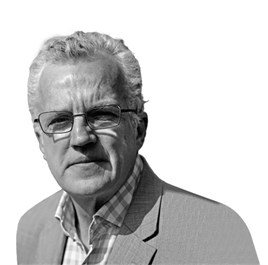 Peer review: Christian Wolmar
Peer review: Christian Wolmar
Transport writer & broadcaster
Mike Jones has made a valiant attempt to answer the Wolmar question of ‘what are franchises for?’ But unfortunately he has failed at the first hurdle. The key point that protagonists of the existing complex and expensive system must answer is whether this model, developed to create on-rail competition that was then effectively ruled out, is the best way of delivering rail services.
Even a superficial analysis will reveal that it is not, which is why there have been so many changes to the system over the years, as Mike outlines. The collapse of the West Coast franchise exposed more than just the frailties in that particular process, it went to the very heart of the weaknesses at the core of the whole concept - of treating our railways like
McDonald’s outlets.
The conundrum of long versus short franchises has never been answered. Long ones require far too much crystal ball gazing, and consequently the private sector cannot take the full revenue risk. Short ones have the disadvantage of being too short-term, preventing any prospect of investment and creating upheaval for the staff and (possibly) the passengers.
The second conundrum that Mike fails to answer is over the amount of freedom to be given to the franchisees. Again, there are negatives on both sides. Give the operators too much, and the profit-maximising entities that win the contract will take advantage and exploit their monopoly position. Give them too little, and they will complain that they cannot make use of the private sector expertise.
Note that taking into account the network grant, all the operators (ironically with the exception of the publicly owned East Coast) are supported by public money, even if indirectly. And they are providing a public service - what economists call a public good. Therefore they will always need to be regulated, and therefore the notion that there should be ‘less interference’ from government is a nonsense.
Mike’s point about profitability is wrong, too. Since train operators make very little investment, there is no cost of capital. Yes, there is the bond, but that does not justify the profitability of the train operators, which is likely to be higher than the usual stated amount of £250 million (or around 3%) annually, since there are internal costs allocated to parent companies that are not transparent.
Capitalism should reward investors or risk takers, like the Victorian companies that built the railways, but today’s train operators do neither.
Finally, he ducks the issue of foreign state-owned companies making profits out of our railways, and therefore subsidising their own networks from ours. How can that be justified?
In order to demonstrate the value of franchising, Mike would have to show that it is undoubtedly superior to other ways of running the railway. In fact, by entrenching the separation of operations and infrastructure, created to allow for open access operators who (apart from a couple of exceptions) were then effectively barred from the railway, franchising does the railway a disservice.

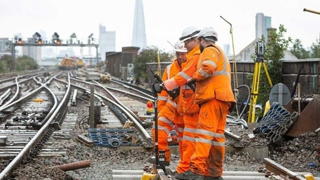
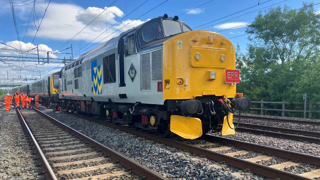
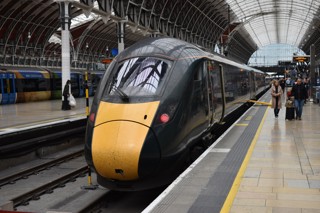
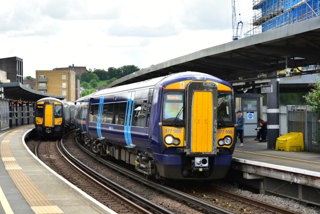
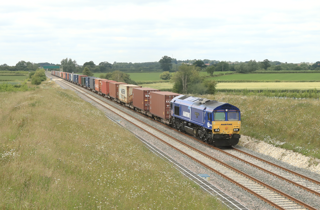







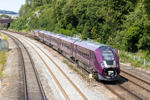


Login to comment
Comments
No comments have been made yet.